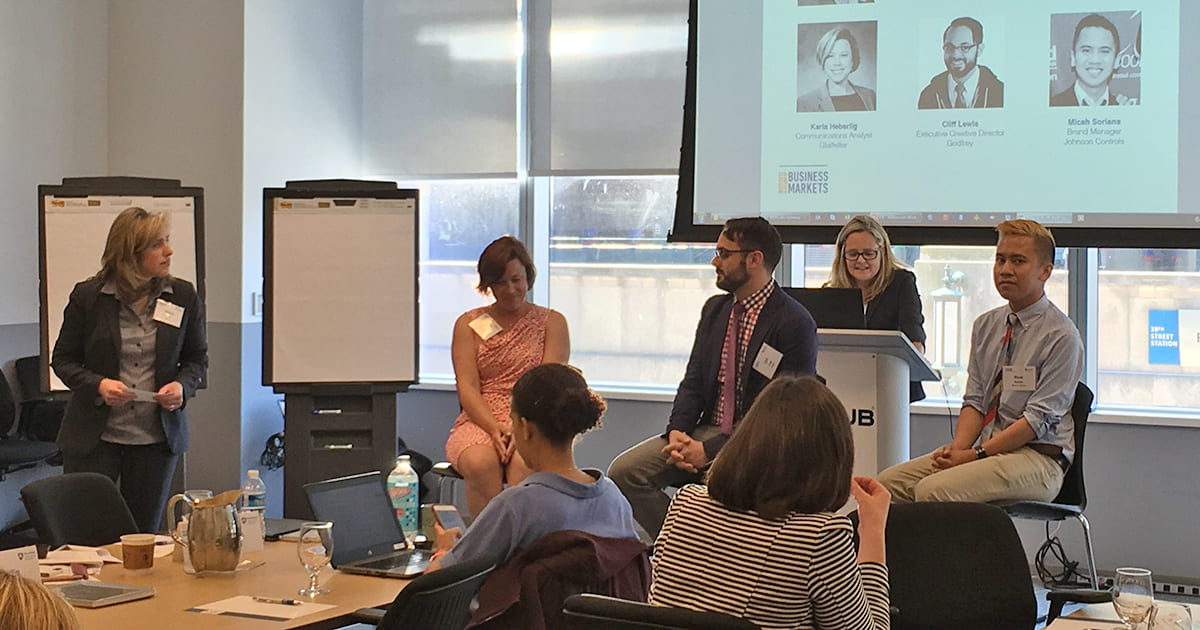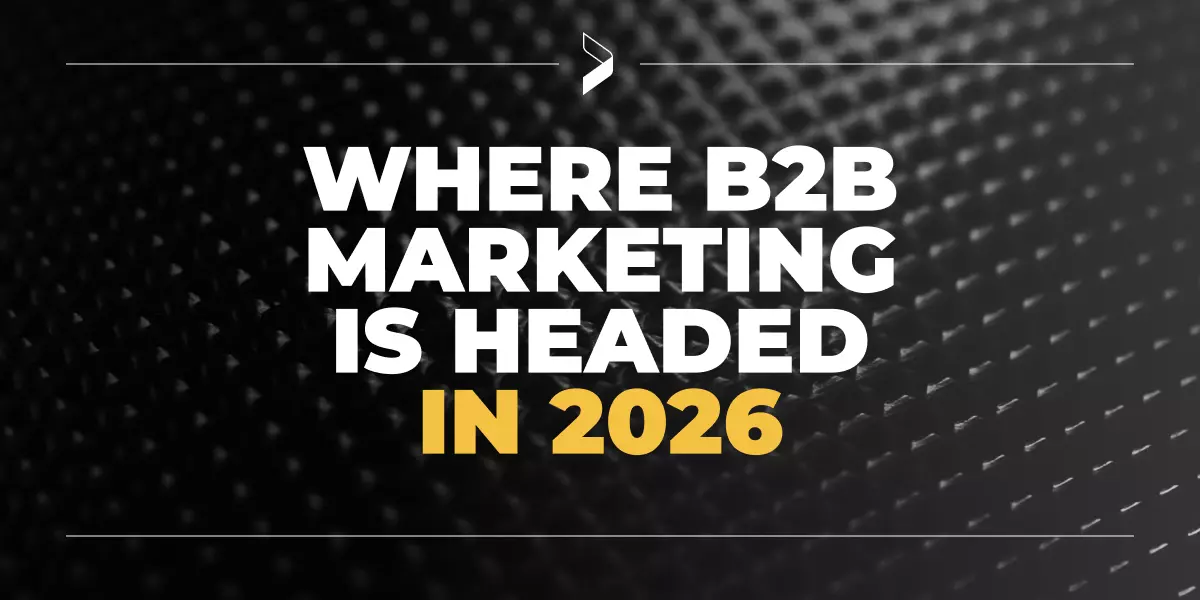B2B Marketers "Talk Millennials" and How They Will Reshape Our Industries

The millennials are coming! And we’ve got some intel on how they’ll reshape B2B industries. Here’s a hint: We’ve got some time before they become B2B buyers. But we still need to be prepared.
Incoming! If you look not far down the horizon, you’ll spot that tidal wave of digital natives born between 1980 and 1996. America’s largest generation is about to flood the global workforce in droves. The millennials are coming, and they’re about to change the way we work. Recently, a group of B2B marketers gathered to discuss these changes in a “jam session” hosted by the Institute for the Study of Business Markets and sponsored by Godfrey.
In the workplace, millennials are both promising and puzzling.
Our main attraction was a presentation from John Fleming, the chief scientist at Gallup. Fleming shared Gallup’s findings from a new report called “How Millennials Want to Work and Live.” According to Gallup, millennials are more purpose-driven, growth-oriented and empathetic than any other generation on record. In the workplace, however, millennials are characteristically transient and unengaged.
This is a puzzling generation – as much to themselves as to their predecessors. Perhaps that’s why they’re so concerned with making sense of their place in the world. Gallup found that, more than anything else, millennials are searching for meaning in their work. They’d sooner make a big difference than make a big paycheck.
We listened to millennials and the B2B marketers who work with them.
The Institute event was designed as a collaboration, so our sessions with Fleming were broken up by small group workshops and Q&A time with a panel of millennial B2B marketers. That panel included Cliff Lewis, one of Godfrey's executive creative directors; Micah Soriano, a brand manager at Johnson Controls; and Karla Heberlig, a communications analyst at Glatfelter.
As Heberlig later put it, the daylong discussion was all about “understanding my generation’s greatest weaknesses and our greatest advantages. And the truth is, properly coached and positioned, millennials will serve as change agents, innovators and coaches within companies that will positively impact society for generations to come.” During the panel discussion, Lewis noted that the millennials’ demand for greater meaning should impact the way we define our B2B brands. “It's not just about your unique selling proposition anymore,” Lewis said, “now it’s also about finding your unique existential proposition."
Slowly but surely, we’re seeing the shift in B2B.
Many of the attendees observed that millennial consumer behavior has been shifting product demand and forcing changes in the supply chain. For example, millennials are looking for more on-demand customization and aesthetic input in their purchases, which is having a major effect on OEM component suppliers and building materials manufacturers.
Through the panel and group discussions, we also found that our group of B2B marketers was more often dealing with millennials as coworkers than as buyers. This is no surprise, considering the present shortfall in younger personnel in the engineering space. (Generation X fills some of the gap here, but at 80 percent the size of each neighboring demographic, they just don’t have the numbers.) But sometime in the not-too-distant future, the bulk of today's engineering set will retire and open up a new wave of millennials with B2B purchasing power.
If our group discussions were any indication, the age of the millennial B2B buyer has not arrived in full force. Not yet. But we can already see it on the near horizon.
Sign Up for our Newsletter - Get agency updates, industry trends and valuable resources delivered directly to you.
Godfrey Team
Godfrey helps complex B2B industries tell their stories in ways that delight their customers.




